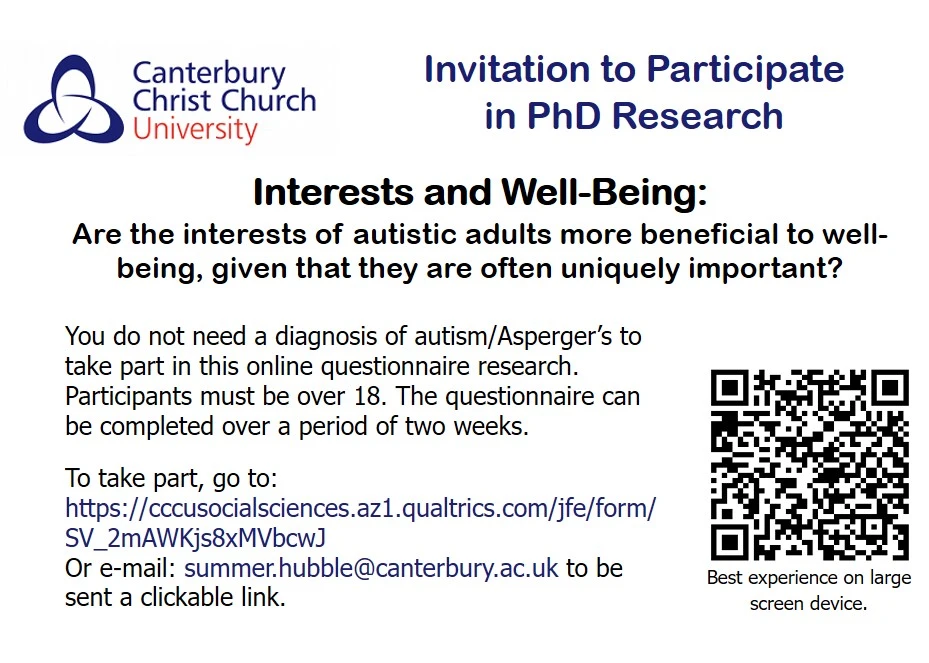SummerAmy
Active Member
Hi everyone 
I have recently had some feedback about a research poster I put out, saying that they didn't like my use of the term Asperger's. I had used it for a reason (where I am from this is the term most people prefer, but I now realise the internet is a whole different game!), but I have now redesigned the poster in a hope to balance this out.
What are your thoughts on the new design? Am I likely to accidentally offend anyone, and is any of it unclear? I was quite upset about the last feedback, so it would be great if I had feedback on this one before I sent it out
Thanks
Summer

I have recently had some feedback about a research poster I put out, saying that they didn't like my use of the term Asperger's. I had used it for a reason (where I am from this is the term most people prefer, but I now realise the internet is a whole different game!), but I have now redesigned the poster in a hope to balance this out.
What are your thoughts on the new design? Am I likely to accidentally offend anyone, and is any of it unclear? I was quite upset about the last feedback, so it would be great if I had feedback on this one before I sent it out
Thanks
Summer
